푹싹 속았수다: When Life Gives You Tangerines
Exploring an American living on Jeju Island's perspective of Netflix's most recent hit K-Drama
Note: Spoiler Alerts for the Netflix Show: When Life Gives You Tangerines: 푹싹 속았수다
Early on during my time on Jeju Island in Korea, I was walking down some steps on the path of an Olle along the southern coast. It was the end of summer. The day was hot and sticky, with only the slightest bit of relief from an occasional breeze off the water below.
My family and I had the path to ourselves. In those moments, you do feel as though you’re the only ones in an entire country, experiencing peace and beauty in an all-encompassing way.
Approaching us along the path was a woman about my age. Sad and soulful music was blaring from her cellphone. The sound was tinny and shallow, trying to reach beyond the scope of its capacity in the open air against the sea. It grew louder as she approached and so too did her weeping.
Wailing loudly in a world of her own, she walked slowly and deliberately, skirt waving around her legs, tears streaming down her face, music accompanying her sobs. When she saw us, her crying stopped. She bowed hastily in polite acknowledgement and then carried on with her sobbing as soon as she passed.
I’ll never forget this woman and the feelings she was freely putting out into the world at that moment.
I felt for and admired her at the same time.
It was like being an extra in her own personal K-Drama.
If you haven’t heard of K-Dramas, you’re not paying attention. In a world with too many options, 25%(ish) of American households are consistently adding K-Dramas to their binging repertoire.
I’d like to delve into this topic a bit deeper at another time, but for now, I’m still babying my puffy face thanks to the uncontrollable weeping I did last night after rotting on my couch to finish Korea’s latest hit, When Life Gives you Tangerines on Netflix. I gave in to the weeping on the final episode.
Something to understand about anything Korean is the underlying (but usually overt) sadness that supports the majority of storylines, layered with a moody, heart-wrenching foundation. I’ll often say to my friends about a Korean book (Human Acts, Island of Sea Women, Sex in The Big City, Pachinko) or K-Drama: “If it’s not sad, is it even about Korea?”
When Life Gives you Tangerines takes place here on Jeju Island. A K-Drama that spans four generations of a Korean family (and history) on Jeju? That’s double the sadness for double the feels.
Jeju has its own specific culture, dialect, and disproportionate share of human atrocities that have occurred in modern history. When Life Gives You Tangerines manages to add humor, raw emotion, and relatability to 16, hour-long episodes.
A few things struck me as I watched: This is a real portrayal of Korean and Jeju culture. This is an insider’s view of what it’s like to peel dozens of quail eggs, rinse seaweed, and ladle soup for your in-laws. Watching, you actually feel what it’s like to sit on the floor of your mother’s bedroom next to her mother-of-pearl wardrobe, rifling through the drawers to find hair clips and jewelry, and pulling out comforters and blankets to sleep on the floor with your family at night.
This is what it’s really like to navigate excruciating family dynamics related to marriage and inheriting someone else’s children through that marriage, what happens when your mother doesn’t like your girlfriend, and the hard work of selling produce and seafood on the streets every single day. From my knowledge of Haenyeo (Jeju’s famous women divers) culture - bantering, bickering, and - ultimately - loving each other - the portrayals shown in this show are on-point. Squid and fish boat captains, local town politics and elections, schoolyard culture of mid-century Korea, the academic pressures to succeed, money, economics, and how individual reputations follow you for generations… all of this tracks.
Minimally, if you’re interested in a realistic portrayal of life in Korea, Tangerines provides an intimate look into Jeju and Seoul - of the wealthy and those who struggled - and doesn’t try to add gloss or shine where it wouldn’t be.
This also makes the beauty of the scenery of Jeju stand out: the yellow Canola flower fields, the lava rocks along the cliffs of the ocean and that line the neighborhood paths, stacked with precision and care to protect crops and laundry from the strong winds... there’s nothing one needs to do to enhance any of this natural beauty. All of what you see in the cinematography is true to what it’s like to live here.
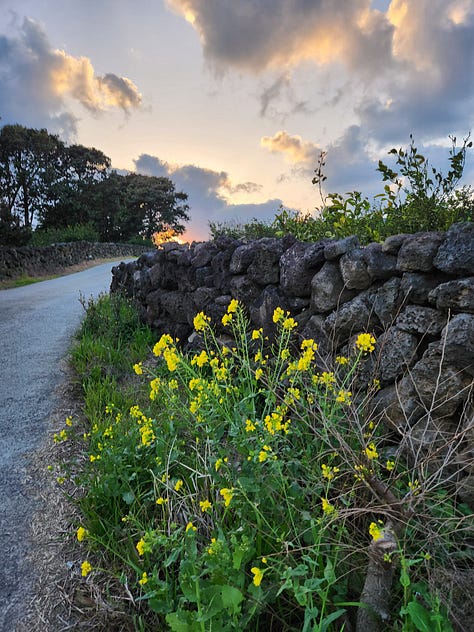
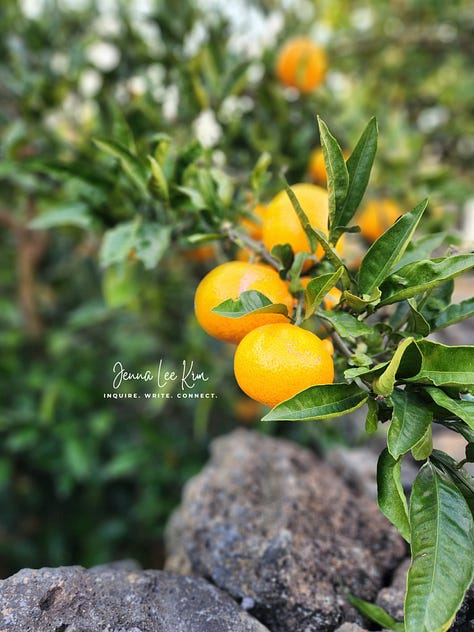
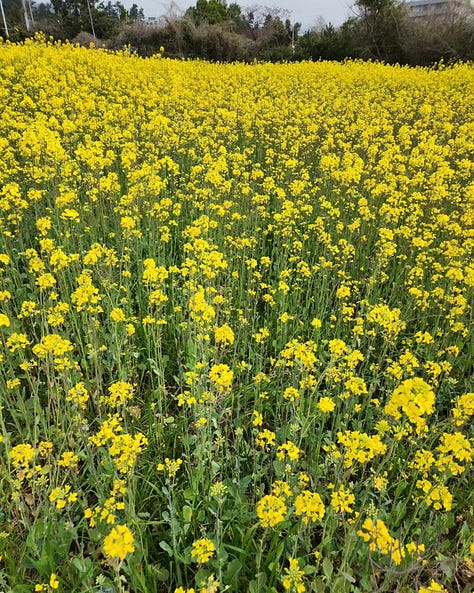
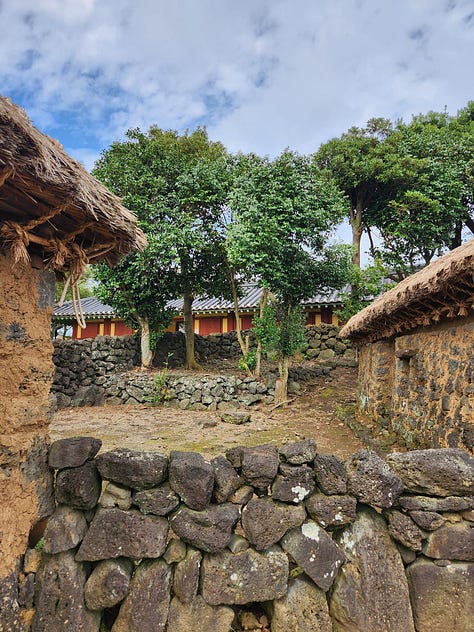
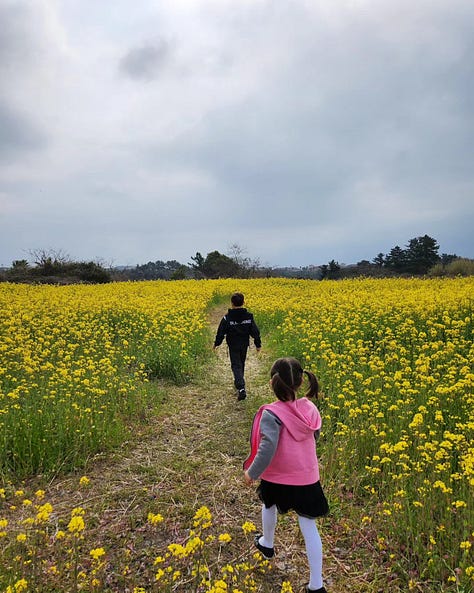
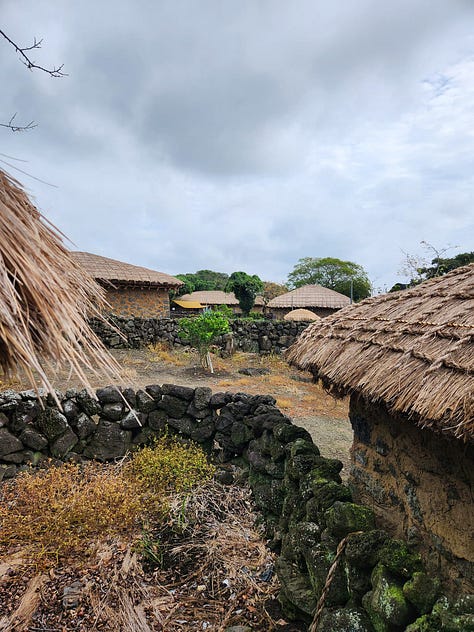
All of this - on top of beginning to recognize the cadence and common Korean expressions throughout the film - is information I feel privileged to know from living here.
Okay, real talk.
If you can get through the (somewhat insufferable) sobbing of the first couple of episodes and can keep up with the quick and smart transitions of time and flashbacks, you’re in for a heavy, gratuitous treat for your emotions. The utter gut punches of this family’s storyline will leave you holding on for dear life, wondering how you will ever survive knowing that people have experienced such pure love, loss, and sorrow. You come to love them in earnest, not just because the show dictates that you should.
It’s presented honestly. The themes are as relatable to you and me if the characters were sitting around a Thanksgiving table with mid-century modern furniture instead of shoulder-to-shoulder on the floor around a Korean bapsang.
What was most surprising to me was how deeply I related to the notes of motherhood - the all-encompassing love, the wonder, the anxiety, the constant feeling of guilt and inadequacy, and the deep appreciation we eventually feel for the mothers in our lives. All of this can be pulled out of each episode in tangible ways. In many ways, the characters in this show gave me some of the best insights and advice about motherhood that I’ve ever received.
Unlike other shows, Tangerines doesn’t hit on the major plot point of a tragic death like a punctuation mark and then move on. It unpacks the loss of a child in a thorough, painstaking, and beautiful way, like watching the tide ever-so-slowly recede into the great expanse of its ocean. It’s a slow burn, as it should be. It impacts a family’s life and it doesn’t let the audience forget it, even when there are moments when the characters themselves do what they can to cope by burying it.
Who, as parents - especially mothers - can’t relate to feeling overwhelmed, exasperated, and at a loss for how to best care for a strong-willed toddler or teenager? Who doesn’t know the feeling of seeing their child as a perpetual kid waving to us as they ride away?
Who, as former children, doesn’t understand the pressures we feel from our parents - whether eldest, youngest, or somewhere in between? Who can’t recognize the expectations we have to succeed, meeting the bar set for us - whether it was high or low - all while feeling a pull to resent our parents and simultaneously knowing they gave us their all?
Who, as humans yearning to connect and belong, can’t remember a time when the most passionate of loves wasn’t enough? When something - family, a job, distance, time, basic misunderstandings - stood in the way of making it work? Or when it’s more painful to watch the person you love hurting than any pain that may be inflicted upon yourself? It left me, as many K-Dramas do, wondering if I’ll ever have someone love me like Gwan-sik actively expresses love for Ae-Sun.
Perhaps, each of us will take away whatever is most buried within our emotions at this very moment.
Tangerines is clever as it illustrates the passage of time. It connects scenes you thought were insignificant to the present in the most satisfying way, like watching breadcrumbs transform into the most decadent layer cake.
Crying is an emotion many of us are taught to suppress. If you’re like me and practicing the art of feeling or you’re simply looking for an excuse to put aside your own worries for some indulgent, unapologetic crying, watch this show.
Oh, and When Life Gives You Tangerines is most certainly not the original Korean title. Modified for an English-speaking audience, you can tell it’s a play on words that we in the west will understand. The original title is something that can’t quite be translated directly from Jejuian: “푹싹 속았수다” roughly translated means: “You worked hard, thank you for your hard work, you’ve suffered a lot.” On mainland Korean you might say: 고생 했어요.
My guess is that this is a phrase common in Korea used to express the hard work and suffering Korea understands all too intimately. Recognizing both is key to beginning to understand the history and culture of the people of Jeju Island and their peers on the mainland.
Have you watched When Life Gives you Tangerines? Let me know what you thought. Questions? Comments? Leave a comment here and I’ll respond to it on my Spotify Podcast: Exploring with Jenna Lee Kim in an “unplugged” and unscripted way! You can also send a message here or email me at jenna.tae.hee.kim@gmail.com.



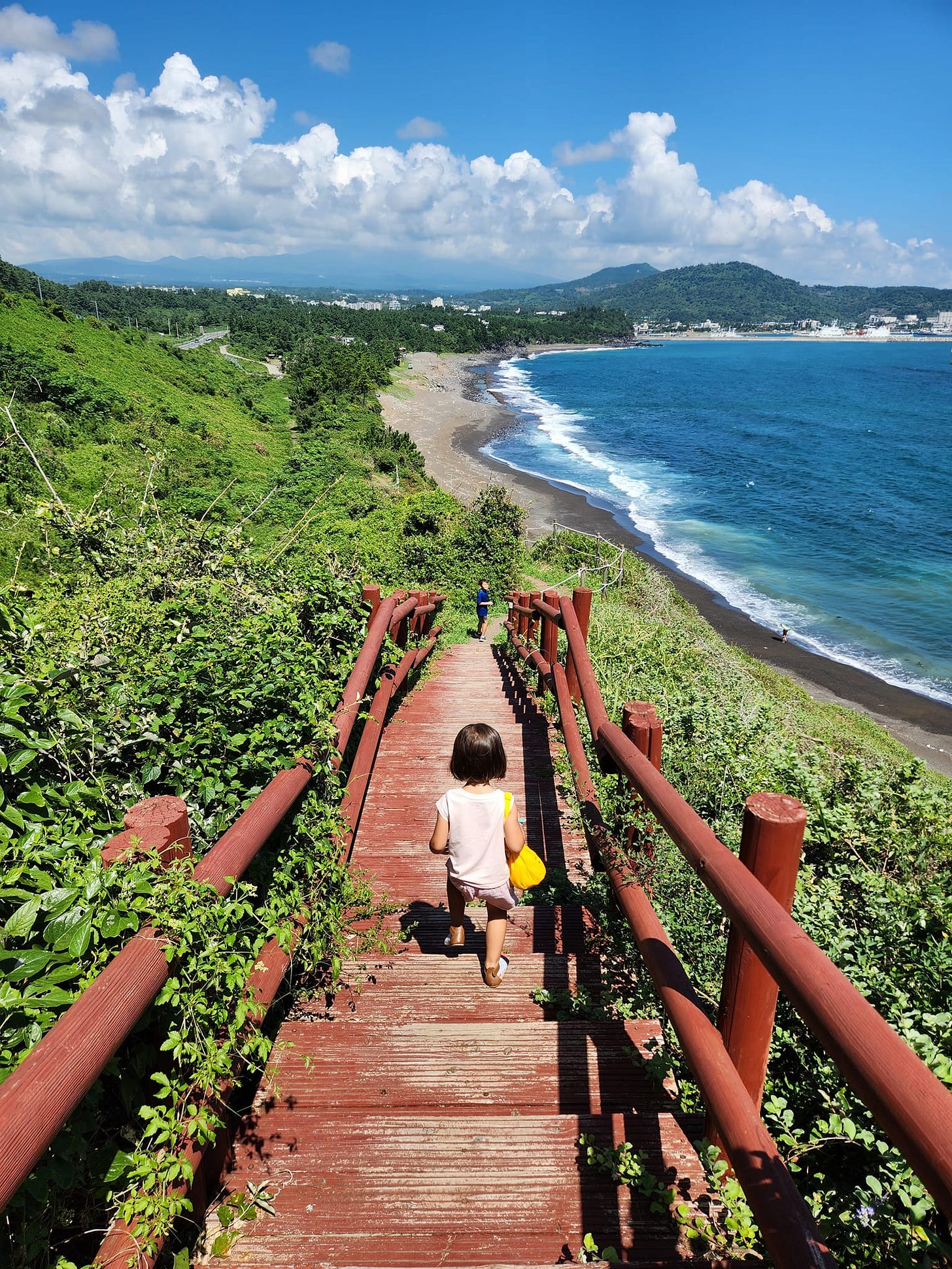
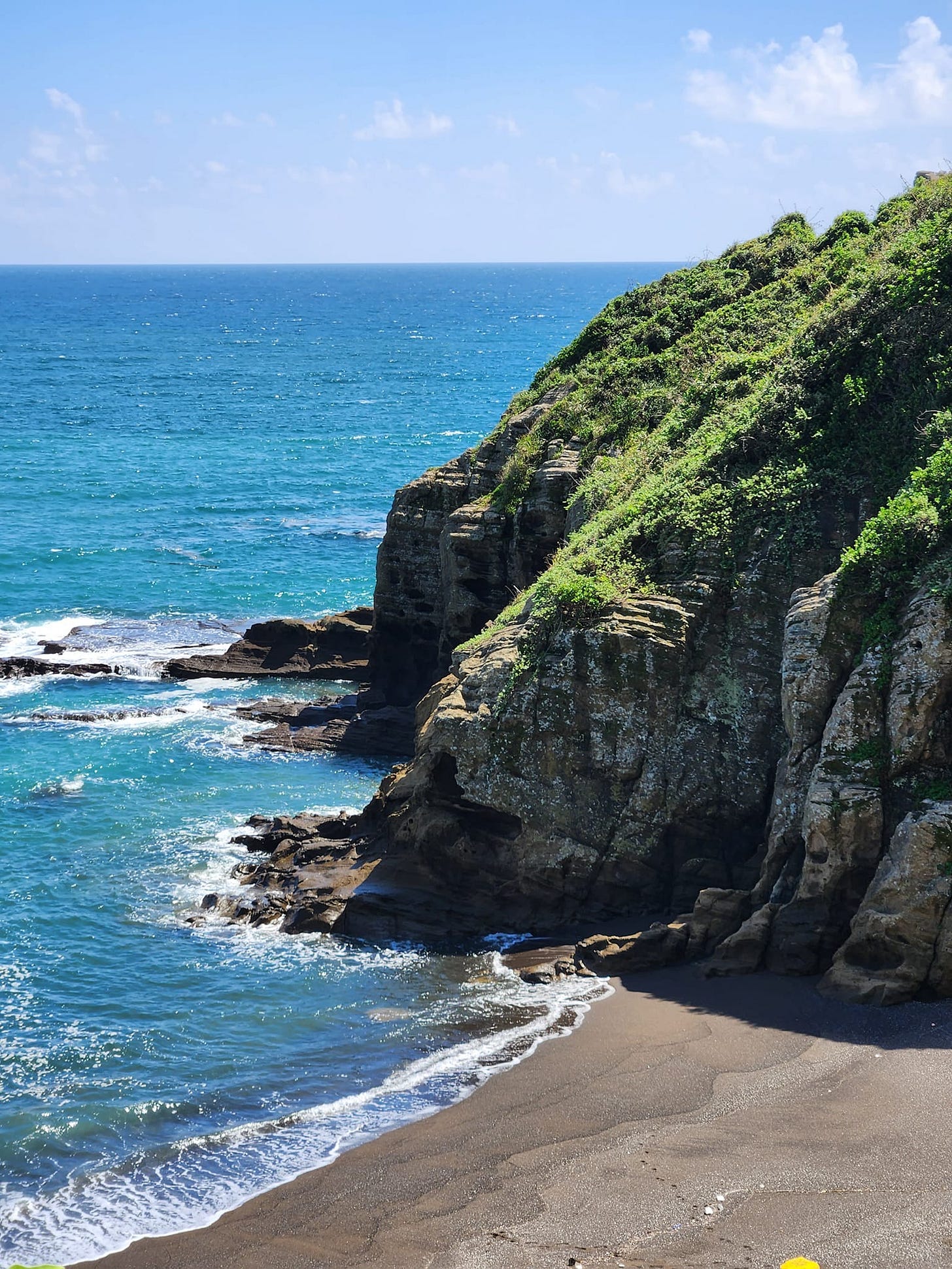
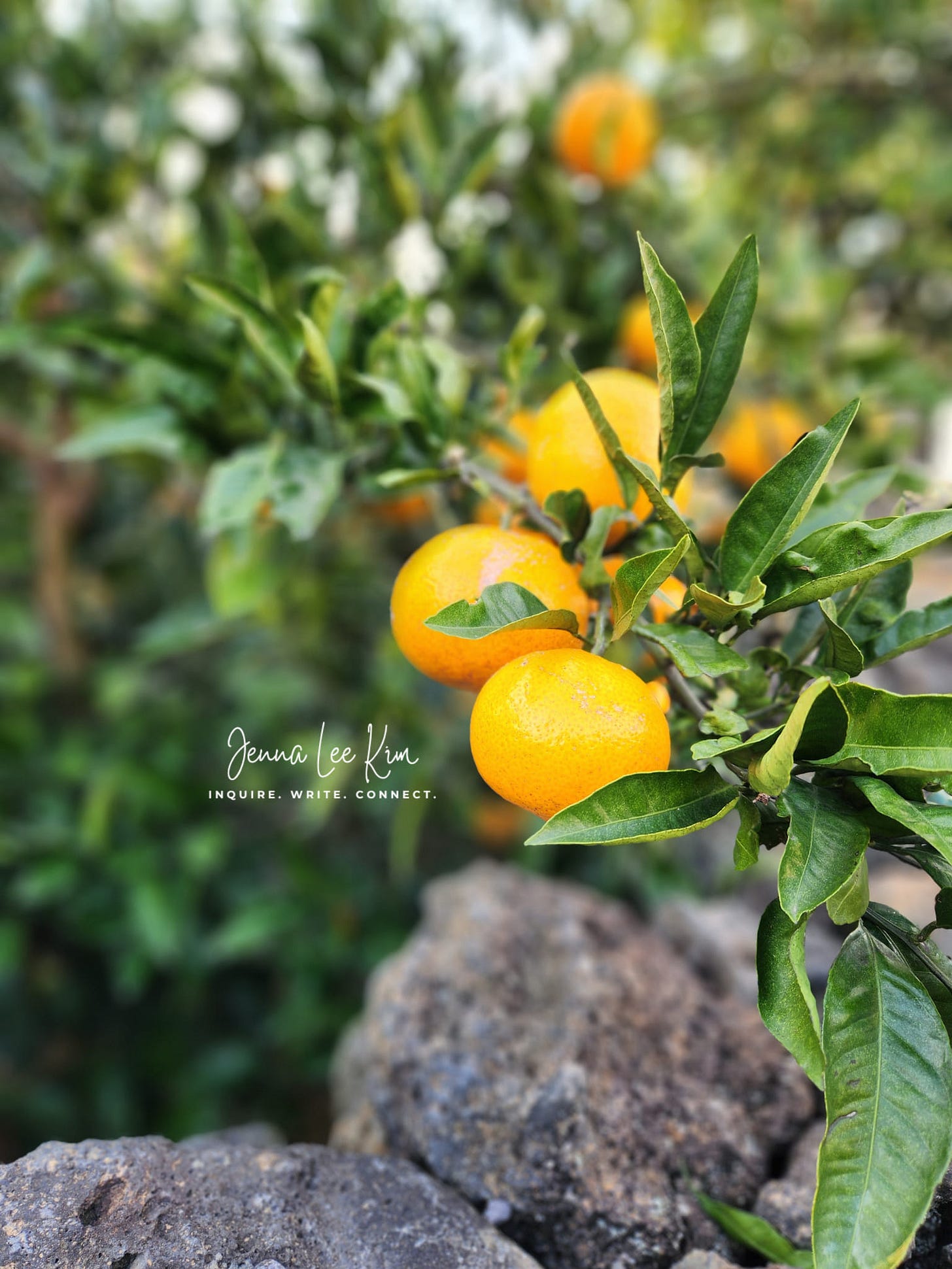
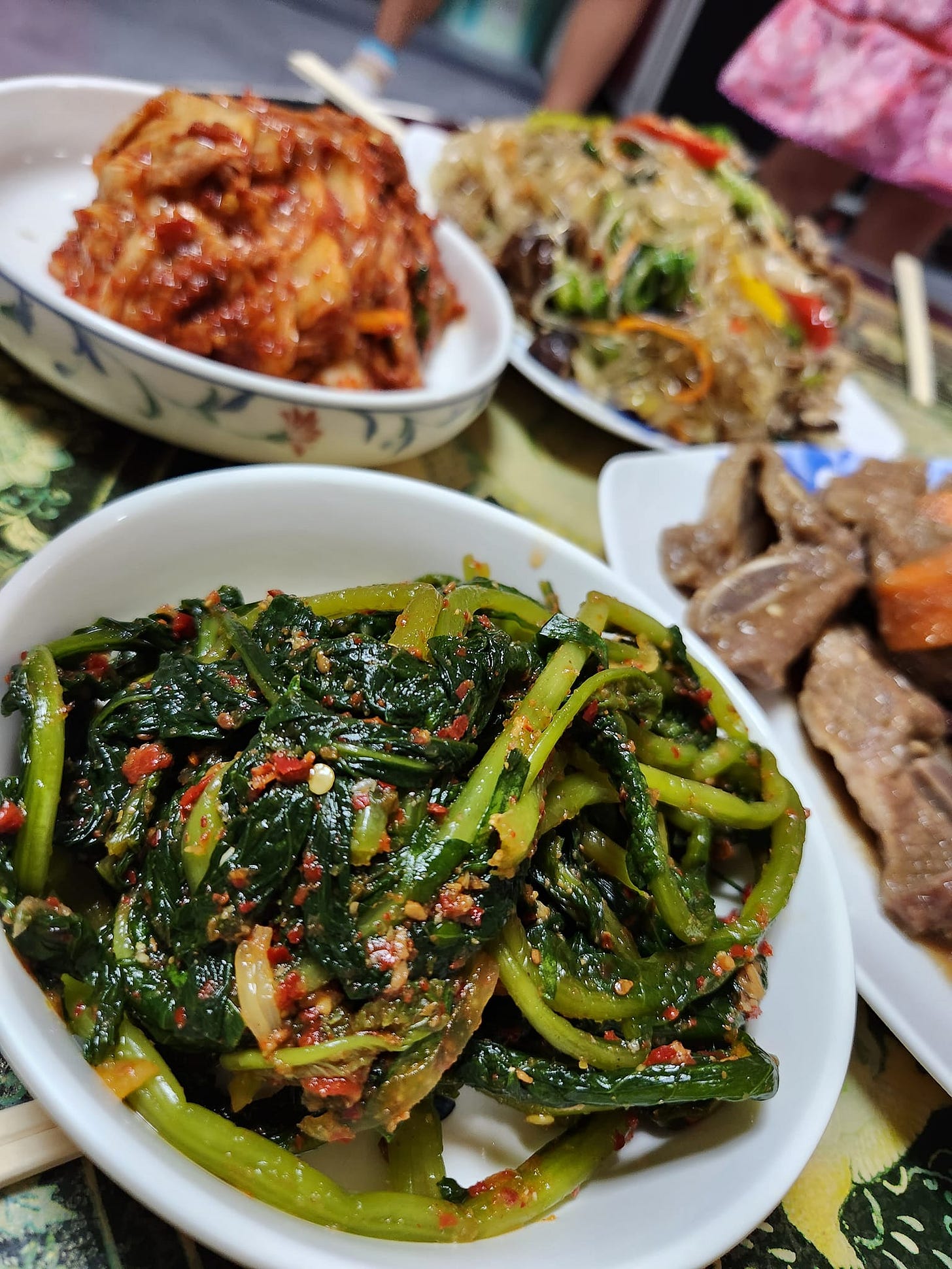
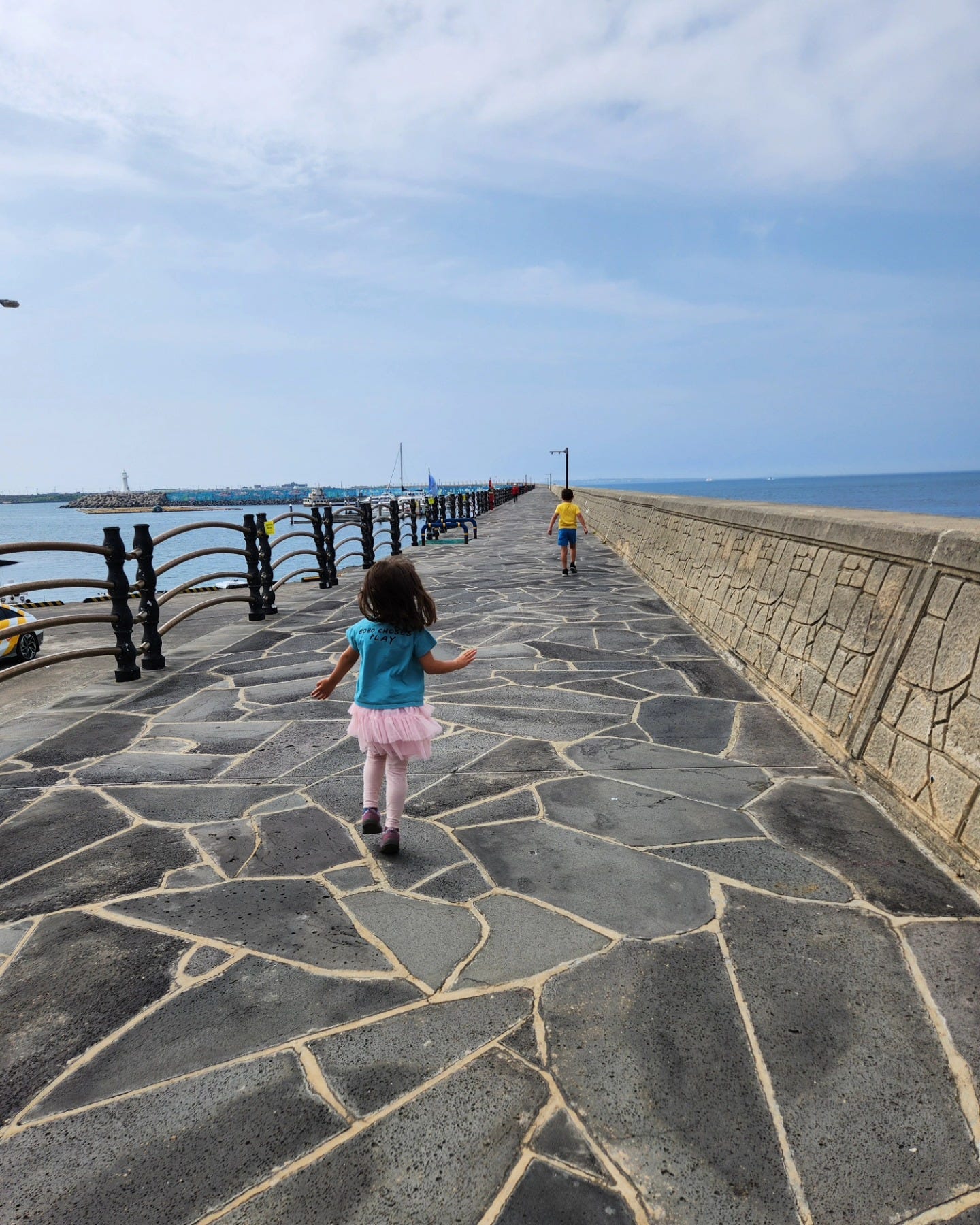
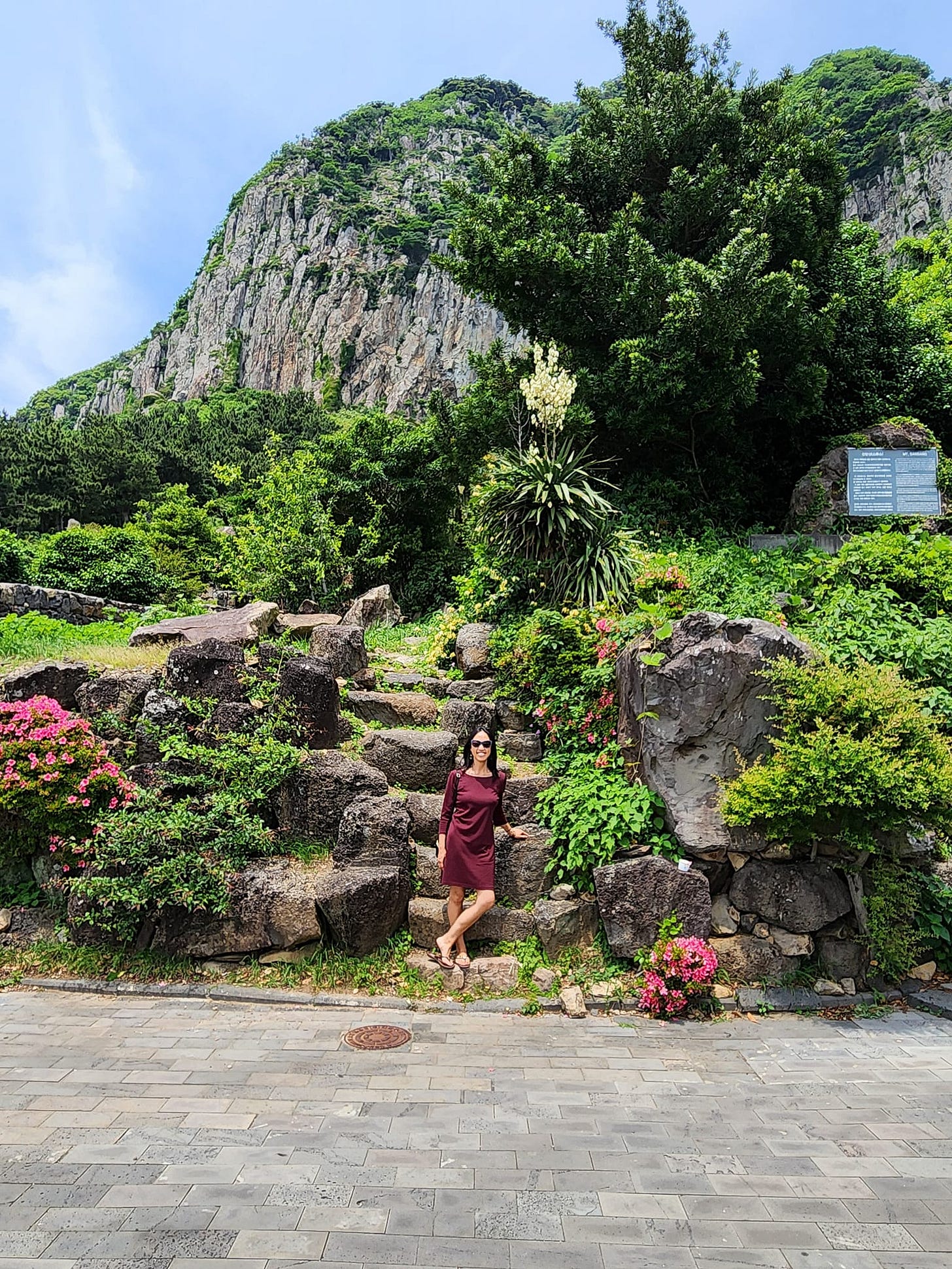
For years I have been enjoying Kdramas on Netflix. I especially enjoy the romance dramas and that they finish usually in 16 episodes. When Life Gives You Tangerines was one of the best with the multi generations of women and the narration. Having one of my favorite mayors, Mayor Jenna, move to Korea only stimulated my interest more in this type of TV watching. I live in a little section Linfield of Limerick Township nearby Royersford where Mayor Jenna lived. Thank you Jenna for being such a wonderful writer and adding more realism to my interest of your culture.
I’m not a screen watcher and I don’t generally embrace high drama but I’m thinking that I may have to check this out. Perhaps it will help me relate to my DIL on a different level?